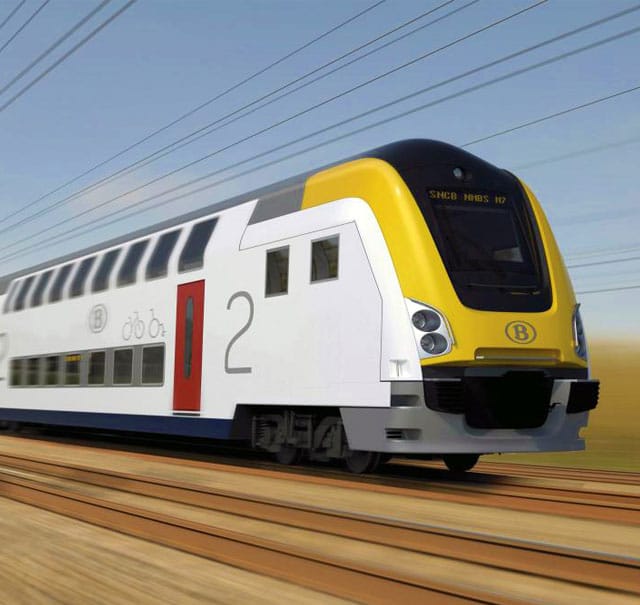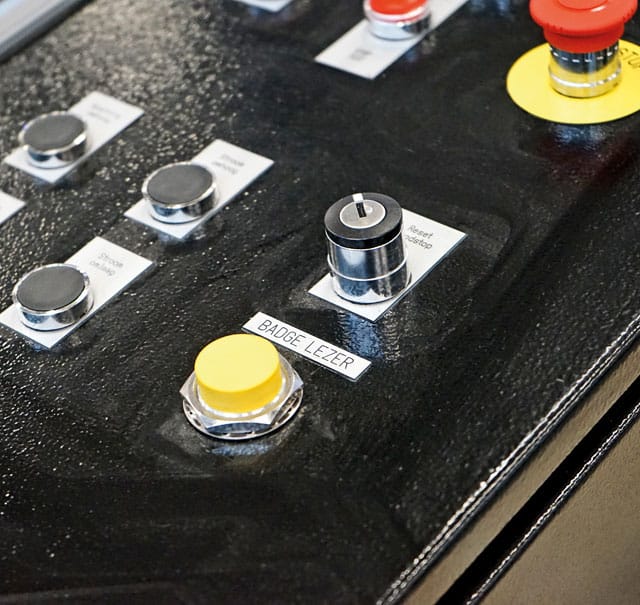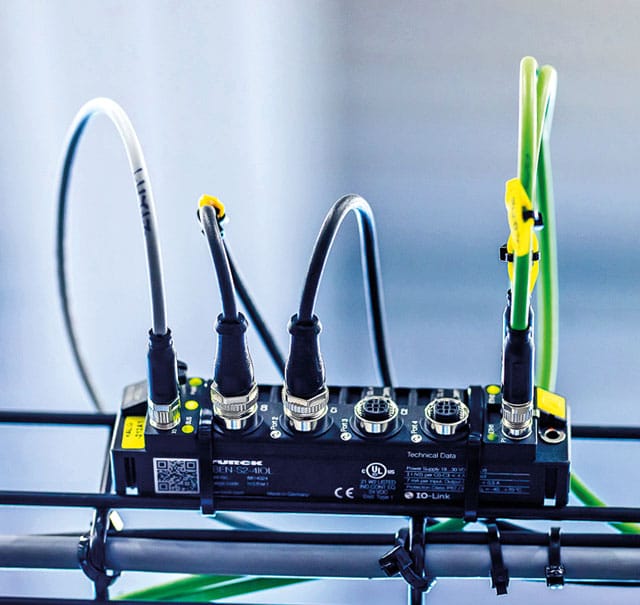Belgian Railways Uses RFID System to Secure High-Voltage Tests
Belgian Railways relies on RFID Access Control Solution by Turck in High Voltage Areas
The National Railway Company of Belgium
- The company formally styles itself using the Dutch and French abbreviations NMBS/SNCB.
- Close to 20,000 Employees
- Headquarters: Saint-Gilles/Sint-Gillis, Belgium
- Railroad Network Density of over 110 m/km2 – more than double the EU average
- More than 160 Million Passengers annually
The Belgian railway company NMBS/SNCB tests train converters in a new laboratory at 3,000 volts. A safe working environment and access for trained staff is ensured using an RFID system from Turck.

The Belgian railway company NMBS/SNCB tests train converters in a new laboratory at 3,000 volts.

Mechelen is a city between Brussels and Antwerp in northern Belgium. Inside the 13th-century St. Rumbold’s Cathedral is an imposing altar and a work by Flemish artist Anthony van Dyck.
In 1835, one of the first steam-powered railway lines in Europe began operation between Mechelen and Brussels. Today, the central workshop of the Belgian railway company SNCB/NMBS is located in Mechelen.
Mechelen is a small and picturesque city that is big on charm and history, thriving with quaint shops, car-free areas and pleasant little squares. The grace of centuries-old palaces and majestic churches appeals to everyone. There are no less than 336 listed buildings and monuments, including eight gothic and baroque churches from the 14th-17th century.
In the central workshop, essential train components are overhauled. This includes wheelsets, brake controllers, distributors, AC3D units and load proportioning valves. In addition, NMBS/SNCB tests train converters at 3,000 volts in a new high-voltage testing laboratory.
High Voltage Testing Areas
In order to guarantee safe working conditions, companies must reliably ensure that only persons with appropriate training are allowed access to certain areas and facilities. The Belgian railway company SNCB/NMBS uses an RFID system from Turck to monitor access to the high-voltage test areas of its central workshop in Mechelen. This is where train units are maintained, rebuilt and overhauled. In a new laboratory, SNCB/NMBS tests the converters of the trains at 3,000 volts.
"The risks of a 3,000 V installation should not be underestimated," says Kristof Honee, in charge of the electronics department at the central workshop of Belgian Railways SNCB/NMBS in Mechelen.
"Even when the power is off, there can still be charge in coils and capacitors. That's why the work must always be done systematically, in accordance with established procedures, and by people who are aware of the risks."
In Belgium, the overhead lines for the trains carry a DC voltage of 3,000 volts. Power converters in the trains convert the high voltage into lower voltages for the drives, air conditioning and other equipment.
Laboratory power supply delivers 3,000 volts
"In the new lab, we have three test zones to test the converters after they have been overhauled or repaired," Honee explains. "Many components can be tested at lower voltages, but for the final test we use a laboratory power supply that can deliver 3,000 V, just like the overhead line." The tests must be carried out in accordance with strictly regulated procedures, paying close attention to safety risks.
SNCB/NMBS asked the Belgian system integrator Dymotec – specialists in industrial electrical installations and automation – to develop a system capable of managing the test procedures in compliance with all the required safety aspects and to control access. The management of authorizations and the tracking of all processes are crucial here.

The entrances to SNCB/NMBS's high-voltage test room can only be opened by authorized employees using an RFID tag.




